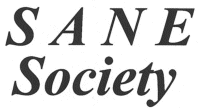
FROM THE INTERNATIONAL MEDIA
Americans still take for granted that Washington has responsibility for steering the economy clear of the shoals, although its now Federal Reserve Chairman Alan Greenspan rather than the President who carries most of the responsibility.
Keynes had no patience with economic theorists who assumed that everything would work out in the long run. (He) would be mystified that the International Monetary Fund is requiring troubled Third World nations to raise taxes and slash spending, that "euro" membership demands budget austerity, and that a U.S President wants to hold on to budget surpluses. You can bet Keynes wouldnt be silent. Dapper and distinguished as he was, hed enter the fray with both fists and a mighty roar.
Global Answers, TIME, 1 February 1999
Globalisation presents a new raft of challenges: hot capital and a hotter atmosphere, more sophisticated cross-border criminals and corruption, accelerating inequality between rich and poor countries. Existing international institutions are struggling with piecemeal reform. And where are the new ones? They hardly exist. Academics, free to think big, have generated surprisingly few proposals for bold new institutions with the power to address global ills. The agendas of diplomats and politicians are barer still, unlike their predecessors who in a burst of practical idealism after the Second World War created the U.N., World Bank, International Monetary Fund, Geneva convention on the laws of war, the European Common Market, the General Agreement on Tariffs and Trade, NATO and a host of smaller bodies that together shape our era. What is really striking about the post-cold-war world is that we are living off a set of international institutions designed 50 years ago for a different era.
Success! The Tobin Tax, ECONEWS, April 1999
Over $1,000 billion is traded every day on the world financial markets, 95% of which are by currency speculators who can have a devastating effect on struggling economies. The Tobin tax is named after the Nobel Prize winning economist, James Tobin, who first proposed the tax as a means to make the world economy more stable, democratic and equitable. The income from the tax could be used for genuine social and economic development and environmental protection in less developed countries. Thanks to a heroic effort by Results Canada, the House of Commons has just voted by 164 - 83 to pass the Tobin Tax proposal brought forward by Lorne Nystrom, an NDP MP, "that the government should enact a tax on financial transactions in concert with the international community." Canada is the first country in the world to pass such a motion - a private NDP member's bill. The motion gives the government a strong mandate to go to the G8 Summit and other international gatherings to promote a tax on international currency speculation as a key component of a "new international financial architecture".